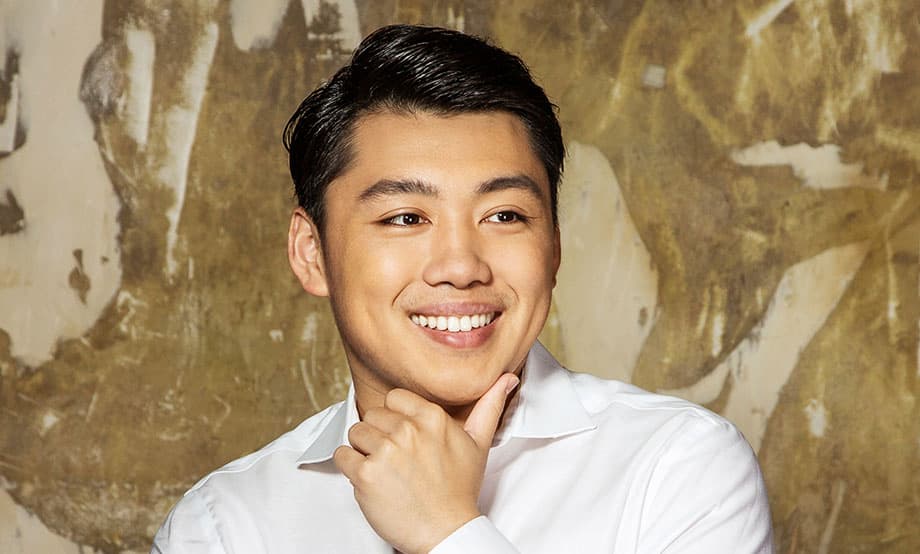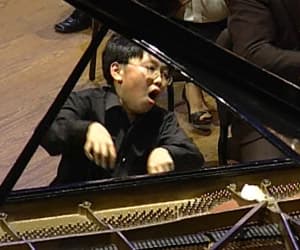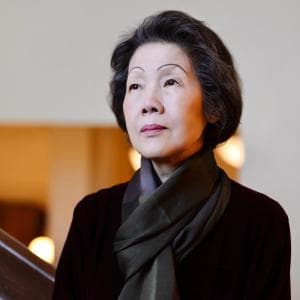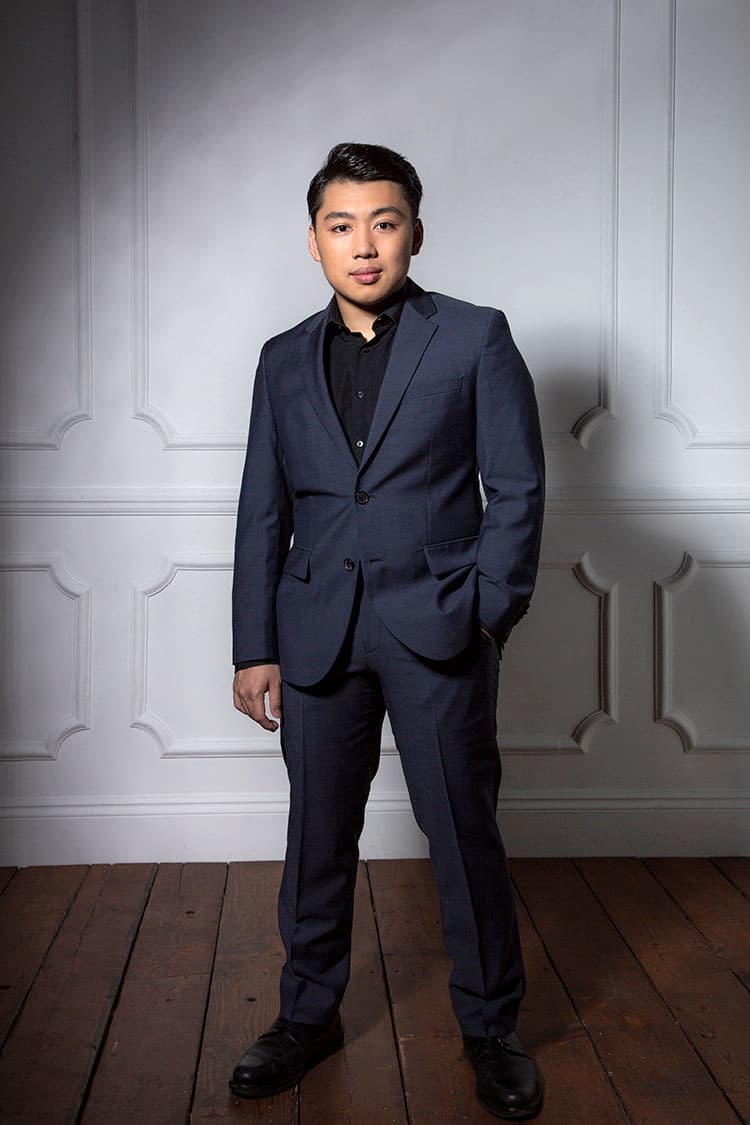The 2015 International Tchaikovsky Competition announced 19-year-old pianist American George Li as the recipient of the Second prize in the piano division. The judges praised his incredible technical skill and his passionate and sincere attitude towards music. “Li showed himself to be a sensitive and intelligent musician, not content with a powerful or superficial veneer of sophistication.”
George Li Plays Prokofiev’s Piano Concerto No. 3 in C Major, Op. 26 (excerpts) “XV Tchaikovsky Competition”
Early Life

George Li
George Li was born on 24 August 1995 in Boston, Massachusetts. His parents had immigrated from China and, because of the Cultural Revolution, did not have the opportunity to study classical music. However, they were music lovers, and Li grew up listening to the sounds of Beethoven, Chopin, and Rachmaninoff. Since his older sister studied piano, the family frequently went to concerts in the Boston area, and Li remembers, “classical music has been part of my life almost from birth.”
Li started piano lessons at the age of 4 with Dorothy Shi and subsequently with Yin Chengzong, and he credits them with teaching him to read music and all about rhythm. As Li remembers, “my early piano teachers have been a huge influence as they taught me to produce a good sound by playing with a kind of cushion in the arm. It was an extremely long process to master, and even longer to do it as a second nature. If not for them, I wouldn’t be here today.”
Yu Shi Wang: Sunflower (arr. Wanghua Chu for piano) (George Li, piano)
First Performance

Pianist George Li playing at the White House
George was only 9 when he first played onstage with the Xiamen Philharmonic. As he remembers, “it was not a major event, just a small room and an amateur orchestra. But for me, it opened up a whole new world. People from the audience came up to me and described how my playing had changed their mood and touched them. It was the first time I realised that an artist can have that kind of effect on people.”
This early concert experience was a turning point in his life, and “since then, I’ve wanted to play regularly for audiences.” Already at an early age, audiences were impressed by his fantastic virtuosity. For Li, it was simply a matter of hard work over many years. “Since I was 11,” he explained in an interview, “I’ve been practicing seven hours a day. But I want to say that technique is not the most important thing for a musician. It is only a means for creating music, for making it sound perfect.”
George Li Plays Horowitz’s Variations on a Theme from Bizet’s “Carmen”
Wha Kyung Byun

Wha Kyung Byun
Li gave his solo recital debut at the age of 10 in his native Boston, and he first featured on the stage of Carnegie Hall at age 11. He was admitted to the New England Conservatory at age 13 and became a student of the legendary Korean pianist and pedagogue Wha Kyung Byun. She remembers, at that time, “George was already a young artist, his eyes were sparkling, full of curiosity and looking for something. I still remember vividly thinking this person has his own universe in him. Even when he was young, I could talk to him as a musician, I never treated him like a child.”
For George, “Ms. Byun was a mother-like teacher. She taught me not only piano techniques and music-making but also how to become a decent human being. She always told me that I needed to become a decent human being before becoming a good pianist.” Simply performing at a prodigious level was not enough; “I needed to perform at the artist level!”
Frédéric Chopin: Piano Sonata No. 2 in B-Flat Minor, Op. 35, “Funeral March” (George Li, piano)
Bruce Lee

George Li © Paul Marc Mitchell
Wha Kyung Byun remembers, “As soon as George touches a piano, he becomes a lion, a bird, fire, wind, he can be everything. It’s a very rare bird that he is. It’s such a blessing for him and us. The horizon is wide open.” For Li, “she was a model we all strive to become, an endlessly strong but caring and empathic human being, purely emanating and breathing music.”
At age 13, George was very fond of actor Bruce Lee, and he compared playing the piano to his favourite quote from Lee, which reads, “Empty your mind, be formless, shapeless, and be like water. You put water into a cup, it becomes a cup; when you put it into a bottle, it becomes a bottle. Be water my friend.” For young George, that philosophical quote became a guiding principle in his approach to performance. As he put it, “For me the piano is like a black box. Whatever I put in, that’s how it comes back. When I’m happy, it comes out happy. When I want to sing, it comes out singing. When I’m bored, it comes out boring.”
For more of the best in classical music, sign up for our E-Newsletter
